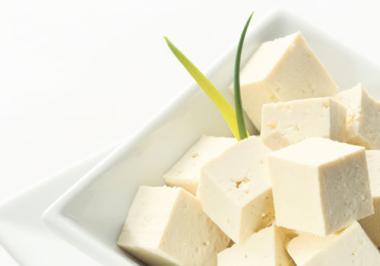Cancer prevention strategies and potential cure-alls range from the banal (the often-repeated three: exercise, eat healthfully, avoid excessive alcohol consumption) to the arcane and controversial. One of the most presently controversial foods or products, especially for women, is soy. Why is soy all over the news lately?
Soy and Breast Cancer
Soy products are receiving plenty of publicity because of their potential links to breast cancer. Soybeans—staples in many Asian countries and an ever more popular “health food” and meat alternative in the West since the “food revolution” of the ‘70s—are an incredibly versatile crop, and one of the world’s cheapest and least calorie-dense protein sources. Soy beans can be consumed whole (as edamame) or in processed forms, as tofu, soy milk, miso, tempeh and soy powder. And, as a report on Breastcancer.org states, soybeans and soy products contain many beneficial chemicals. “Protein kinase inhibitors help keep cell growth and activity normal. Phytotosterols and saponins help regulate cholesterol. Phenolic acid and phytates are antioxidants.” Sounds good so far, right?
The controversial compounds found in soybeans and their derivatives are called isoflavones. Isoflavones are weak phytoestrogens (chemicals found in plants that mimic the human hormone estrogen). And, though soy isoflavones are weak compared to estradiol—the form of estrogen produced by the human body—experts theorize that excessive, long-term soy consumption may affect breast cancer risk.
Conflicting Studies
Most evidence for the preventative powers of soy comes from several trials conducted on Asian women. One of the most recent of these, an epidemiological study published in the British Journal of Cancer in July, concluded that Chinese women who consumed moderate amounts of soy isoflavones daily (about 10 milligrams a day) saw a 12 percent decrease in breast cancer rates. And, according to the same study, women who ate more soy (20 mg of isoflavones per day) saw an even greater reduction in risk: in this case, an estimated 29 percent.
However, several sources have issued cautionary statements about such optimistic findings. As Breast Cancer.org press releases note, studies of Asian women’s soy consumption have many additional variables, as the diets and lifestyles of Asian test subjects and women living in the West are often disparate. Women in the West eat more sources of animal protein than their Asian counterparts and are less physically active, more likely to consume alcohol and less likely to maintain an “ideal” healthy weight. All these factors play a role in determining susceptibility to breast cancer. As a fact sheet from Cornell University’s Program on Breast Cancer and Environmental Risk Factors asserts, “More carefully controlled studies are needed to examine the effect of soy products on breast cancer risk in women from cultures outside Asia and more in-depth studies are needed of Asian women” before any ultimate conclusions can be drawn.
The same document, while simultaneously asserting that “no [human] studies have reliably demonstrated an increase in the risk of breast cancer among women eating soy,” does mention studies with ambiguous findings. Noting that “one of the ways higher estrogen exposure may be linked to breast cancer risk is through its ability to increase growth of milk ducts in the breast…most breast cancer arises from these ducts,” the Cornell fact sheet notes that a study of 28 women showed that milk duct growth increased when they took a soy supplement for six months. And tissue culture studies had similarly mixed results: soy phytoestrogens have alternately encouraged and discouraged the growth of breast cells in laboratory settings.
Everything in Moderation
American doctors, when queried about soy, often give patients a yellow light. Marissa Weiss, one of the founders of Breastcancer.org, tentatively notes that moderate soy consumption (about two or three times per week) is probably safe but cautions against supplement use because of contradictory findings and incomplete research. Oregon-based Dr. Miles Hassell, like Weiss, cautions against soy extracts and isoflavone supplements, especially for breast cancer survivors, as certain “cell studies have shown that soy extracts may inhibit the effect of tamoxifen [a breast-cancer drug].”
Hassell and Weiss also essentially agreed about attempts by breast cancer survivors to minimize their risk of remission and recurrence. According to Hassell, “… a good case can’t be made for breast cancer survivors to limit dietary phytoestrogens.” Weiss reiterated this point, and—as she emphasized the ABCs of good health and the caveat to consult your personal physician before implementing any dietary plan—had one final piece of advice for breast cancer survivors and everyone else: “When it comes to food (and other things too, of course), make sure you enjoy yourself.”



